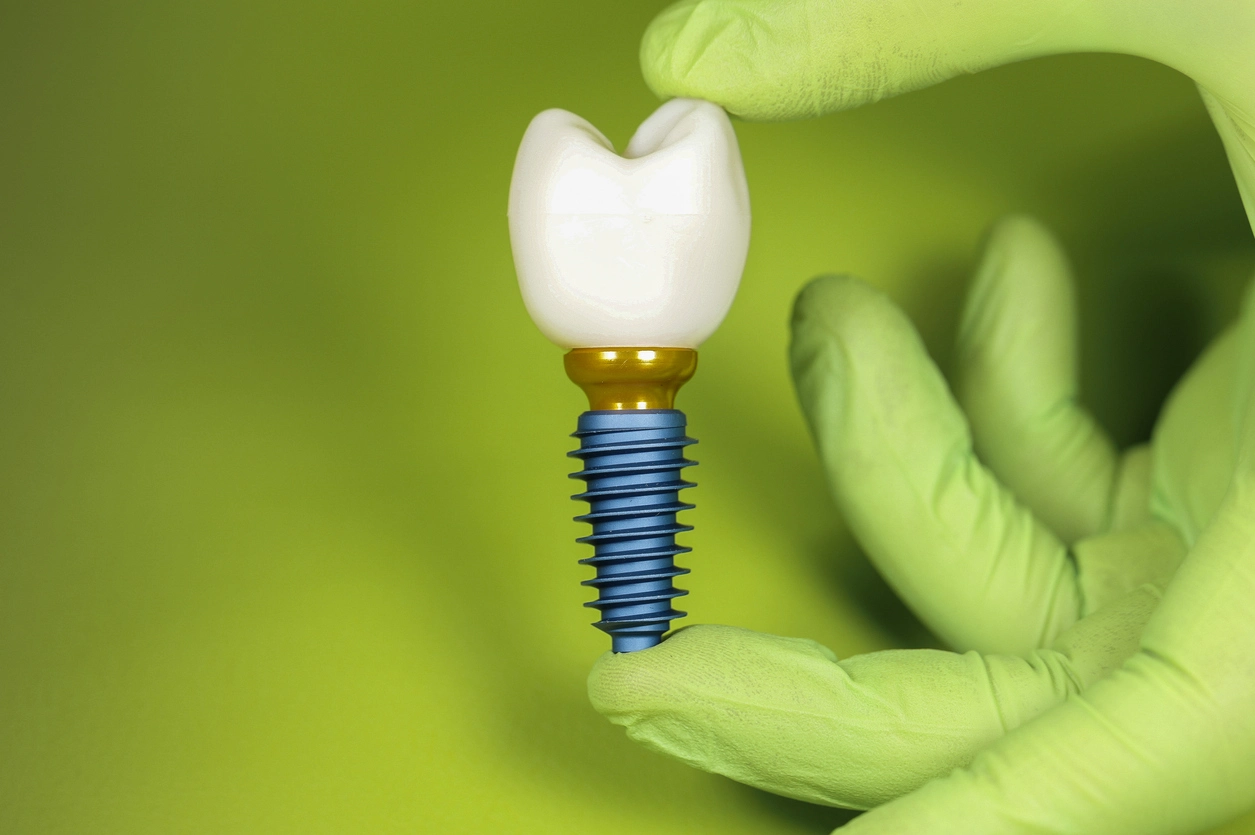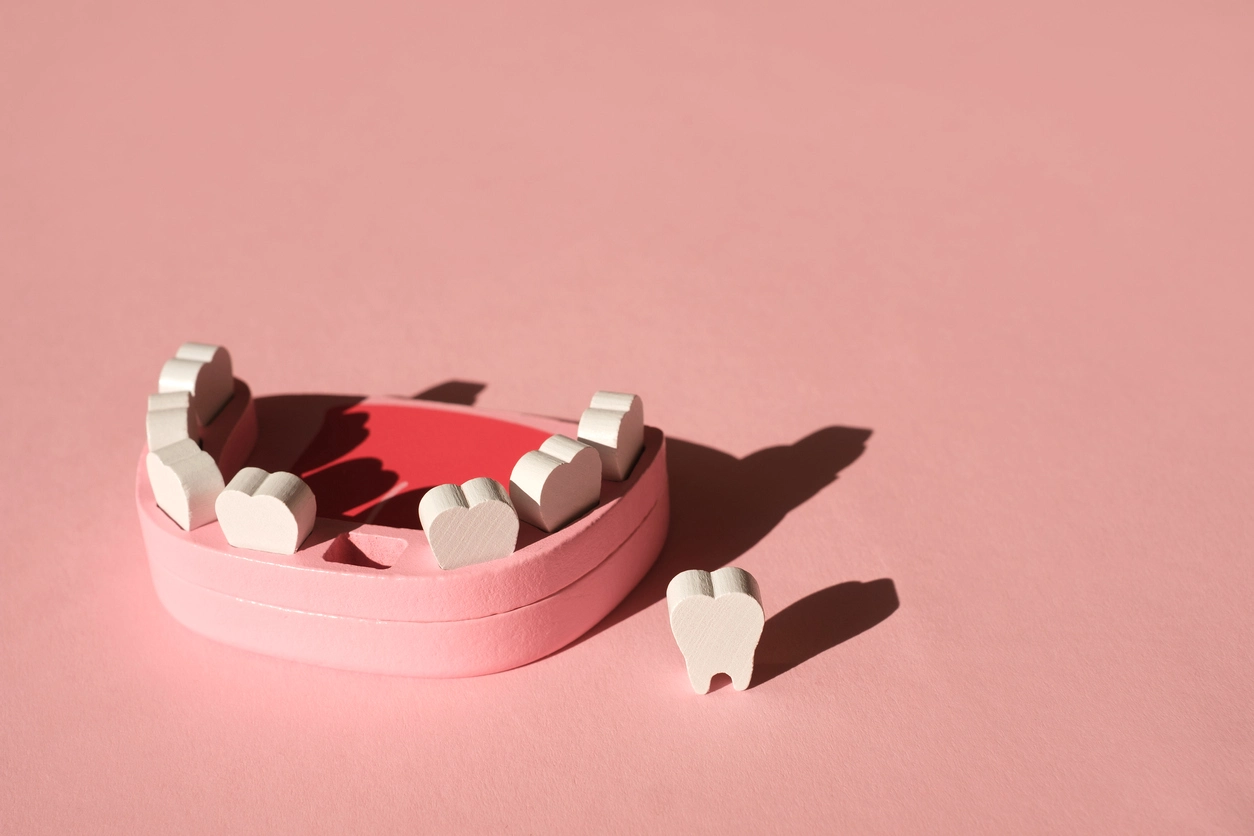One of the most common issues among adult patients at Abadin Dental is missing teeth. This can be caused by genetics, poor oral hygiene, lack of access to quality dental care, and other issues and can have a negative impact on oral and overall health. If you are missing teeth for any reason, it’s important to seek tooth restoration solutions as soon as possible.
One of the most popular options is dental implants. This solution is designed to look, feel, and function more like your natural teeth. The implant is inserted directly into your jawbone, acting as an artificial tooth root. Other solutions, such as dentures and bridges, sit on top of your gums.
Some of the benefits of dental implants include:
- Restores natural bite force
- Prevents jawbone deterioration
- Prevents facial sagging
- Prevents neighboring teeth from shifting into the gap
- Prevents additional tooth loss
However, these benefits do come at a cost. This is among the most expensive tooth restoration solutions. In this article, we’ll explore the costs and benefits associated with dental implants as well as compare this solution with others such as dentures and bridges.

Average Cost of Dental Implants
There are several things that can impact the cost of dental implants including the location of the implant in the jaw, the location of the dentist, the expertise of the dentist, the implant material, the type of implant, and more.
However, on average, you can expect to pay around $4,500+ for a single implant. If you are replacing each tooth with a single implant, you can expect to pay around $40,000+. Another option is All-on-4 dental implants, which use 4 dental implants to support an entire permanent arch. This will typically cost around $15,000. One more option for an entire arch is implant-supported dentures. This solution uses 2+ implants to support an entire arch and typically costs around $8,000+.
These costs only cover the implant and the surgery. This does not factor in additional costs such as sedation, bone grafting, gum disease treatment, extractions, or other necessary treatments.
Since dental implants are designed to look, feel, and function more like natural teeth, your maintenance costs are about the same. You need to brush and floss regularly and visit the dentist twice yearly for a checkup and cleaning. If you are replacing an entire arch with a removable denture, you’ll need to purchase a denture cleaner. Also, if you are replacing several teeth or an entire arch, you may need to replace the prosthetic after several years of wear and tear.
Benefits of Dental Implants
Dental implants are designed to look, feel, and function more like natural teeth. Therefore, there are many benefits associated with this tooth restoration solution, including:
- Restores natural ability to speak and chew
- Improves self-esteem because they look, feel, and function like natural teeth
- Reduces stress on neighboring teeth
- Preserves jawbone health/density, preventing facial sagging and additional tooth loss
- Easy to maintain
- Implant lasts a lifetime and prosthetic teeth last 15+ years with proper care and maintenance
However, it is also important to consider the few disadvantages that come with this tooth restoration solution:
- Does not whiten like natural teeth
- Requires surgery for implant placement
- Expensive, insurance may or may not cover
- Bone grafting may be necessary to restore bone density before placement

Dental Implants vs. Other Restorative Options
In addition to dental implants, Abadin Dental offers two options for tooth restoration:
- Dental bridges
- Dentures
Below, we will compare these three options
Implants vs. Bridges vs. Dentures
| Dental Implants | Dental Bridges | Conventional Dentures |
| Insurance may or may not cover | Insurance typically covers | Insurance typically covers |
| The implant lasts a lifetime, prosthetic lasts 15+ years | Typically needs to be replaced every 5 to 7 years | Typically lasts approximately 10 years |
| Process takes 6 months or more | Can usually be completed within 2 visits | Can take several visits |
| Will not damage neighboring teeth | May damage neighboring teeth | Should not cause damage to neighboring teeth |
| Requires invasive oral surgery | No surgery required | No surgery required |
| Higher upfront cost | Lower upfront cost | Higher cost than a dental bridge, lower than dental implants |
| Permanent | Can be permanent (with the support of implants) or removable | Can be permanent (with the support of implants) or removable |
| Can replace a single tooth or be used to support a multi-tooth restoration | Replaces several missing teeth in a row | Can replace several teeth (partial) or a full arch (complete) |
Should You Get Dental Implants?
If you are missing one or more teeth and wondering if dental implants are right for you, schedule your consultation today with the team at Abadin Dental. We have the experience and expertise to guide you through your options and help you come to a decision.
While dental implants are the most expensive tooth restoration, this solution comes with the most benefits. Some of these benefits include:
- Restores natural chewing/speaking ability
- Lasts a lifetime with proper care
- Supports jawbone health, keeping you looking younger for longer
- Prevents additional tooth loss
Dental Implants FAQs
Dental implants are considered the best way to replace missing teeth because they look, feel, and function more like natural teeth than other options. However, if you’re like many of our patients at Abadin Dental, you have questions. Below are some of the most frequently asked questions when it comes to this procedure.
What factors affect the cost of dental implants?
There are several factors that impact the cost of dental implants, including:
- Location of implants
- Type of implants (traditional vs. mini)
- Location of dentist
- Expertise of dentist
- Implant material (titanium vs. zirconia)
Are dental implants a permanent solution?
Yes, dental implants are considered a permanent solution. However, it is important to note that in some cases, the artificial teeth may need to be replaced after 5 to 10 years or more depending on how well they are maintained.
How long does the procedure to place dental implants usually take?
The entire process of getting dental implants takes a minimum of several months. This is because after the implants are placed, you must wait for the jawbone to osseointegrate with the implant before the prosthetic can be placed- a crown for a single tooth, a bridge for multiple teeth, or an overdenture for a full arch.
Are there any risks associated with dental implants
There are a few risks associated with dental implants that you should be aware of, including:
- Risk of sinus damage
- Risk of implant failure
- Risk of infection
However, you can mitigate these risks by working with a qualified dentist.
Can I replace a single missing tooth with a dental implant?
Yes, a dental implant can be used to replace a single tooth.


